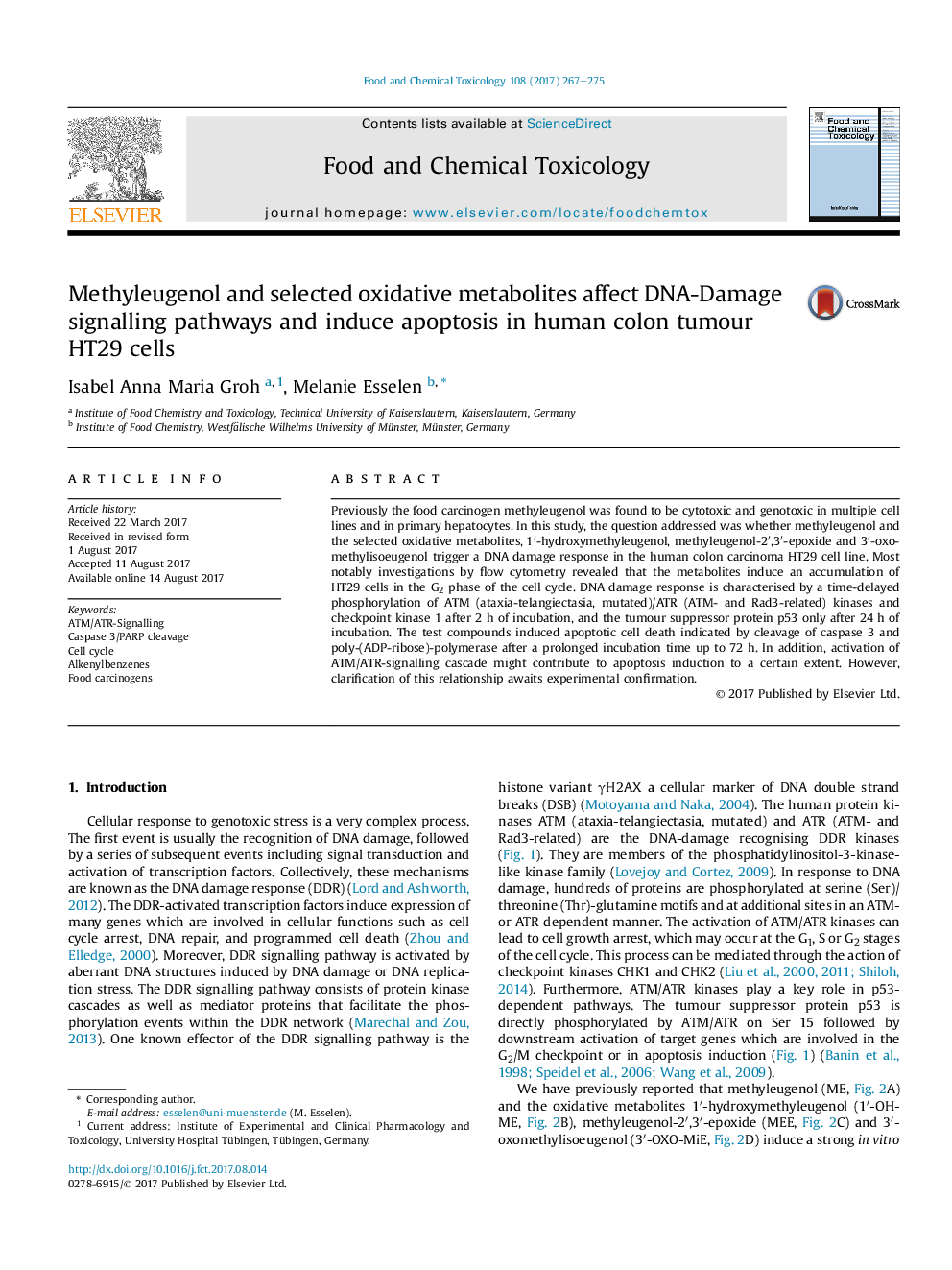| Article ID | Journal | Published Year | Pages | File Type |
|---|---|---|---|---|
| 5560026 | Food and Chemical Toxicology | 2017 | 9 Pages |
â¢Alkenylbenzene-induced DNA-damage leads to an activation of the DNA-damage response pathway.â¢Methyleugenol and its metabolites increase the phosphorylation status of the kinases ATR/ATM and CHK1.â¢p53 activation affects cell cycle progression after alkenylbenzenes treatment.â¢Test compounds induce apoptosis in human colon tumour cells indicated by caspase 3 activation and PARP cleavage.
Previously the food carcinogen methyleugenol was found to be cytotoxic and genotoxic in multiple cell lines and in primary hepatocytes. In this study, the question addressed was whether methyleugenol and the selected oxidative metabolites, 1â²-hydroxymethyleugenol, methyleugenol-2â²,3â²-epoxide and 3â²-oxomethylisoeugenol trigger a DNA damage response in the human colon carcinoma HT29Â cell line. Most notably investigations by flow cytometry revealed that the metabolites induce an accumulation of HT29Â cells in the G2 phase of the cell cycle. DNA damage response is characterised by a time-delayed phosphorylation of ATM (ataxia-telangiectasia, mutated)/ATR (ATM- and Rad3-related) kinases and checkpoint kinase 1 after 2Â h of incubation, and the tumour suppressor protein p53 only after 24Â h of incubation. The test compounds induced apoptotic cell death indicated by cleavage of caspase 3 and poly-(ADP-ribose)-polymerase after a prolonged incubation time up to 72Â h. In addition, activation of ATM/ATR-signalling cascade might contribute to apoptosis induction to a certain extent. However, clarification of this relationship awaits experimental confirmation.
Graphical abstractDownload high-res image (152KB)Download full-size image
